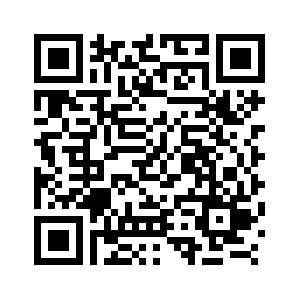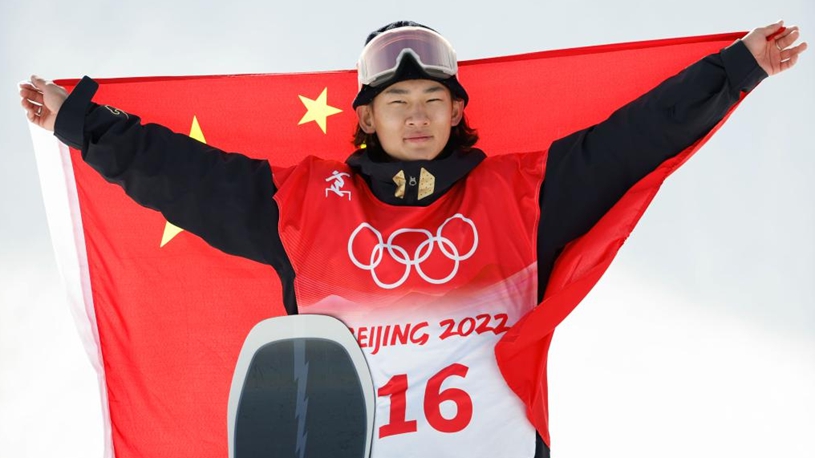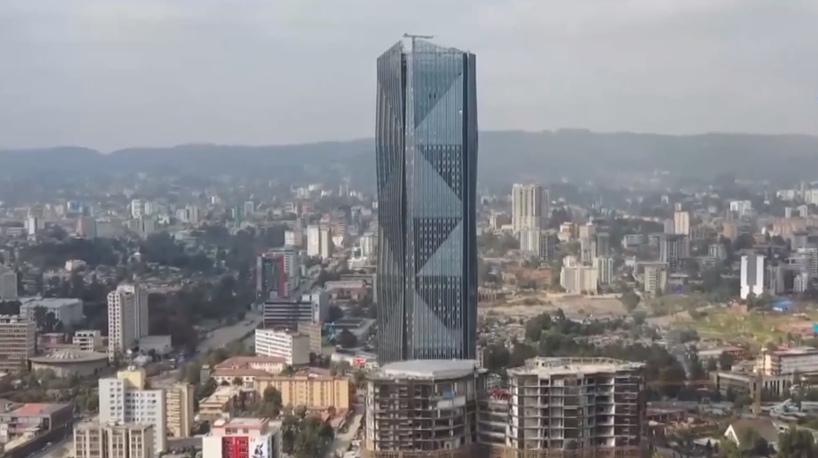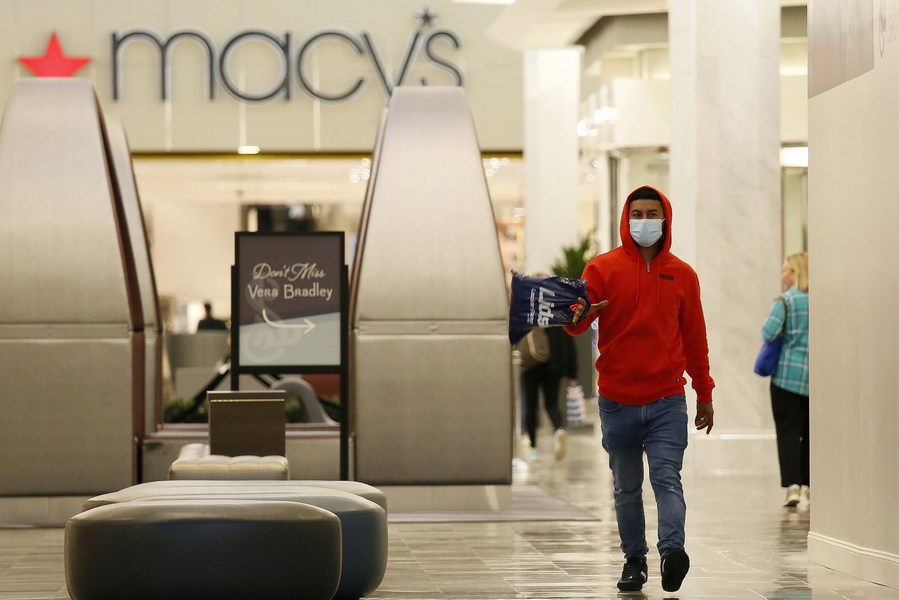
A man wearing a face mask is seen in a shopping center in New Orleans, Louisiana, the United States, Jan. 11, 2022. (Photo by Lan Wei/Xinhua)
Masking is a tool in the tool kit, but there is no substitute for vaccination and boosting, says a physician.
NEW YORK, Feb. 14 (Xinhua) -- Falling COVID-19 case rates are prompting more U.S. states to ease masking requirements, meaning that when or whether to wear a mask is becoming more of an individual decision by a person or an entity, thus exacerbating divisions typical of the country.
A slew of Democratic governors in states that have been among the most mask-friendly is moving to scrap indoor mask mandates, even as some counties and school districts in those states promise to maintain those measures. "With both factions contending they are following the science," reported The Washington Post.
An informal network of parents is pushing for "evidence-based decisions" to rescind in-school mask mandates. At the same time, teachers unions and other advocates for continued masking of students quote from their roster of medical experts, urging elected officials to "follow the science" and maintain mandates, according to the report.
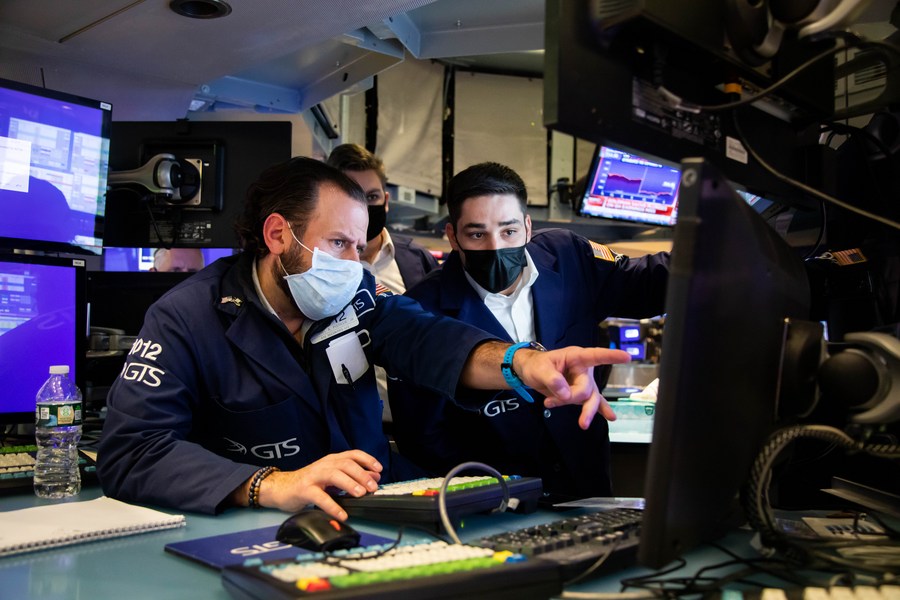
Traders wearing face masks work at the trading floor of the New York Stock Exchange (NYSE) in New York, the United States, on Jan. 18, 2022. (Xinhua/Michael Nagle)
MAJOR BANK GIVE-UPS
The New York Stock Exchange withdrew its mask mandate for fully vaccinated people effective on Friday, making masks optional on the trading floor and other public areas for fully vaccinated personnel and visitors after several large U.S. investment banks dropped their mask requirements at their U.S. offices.
Goldman Sachs will no longer require masks to be worn by employees at its U.S. offices from Monday and will leave it to individuals to decide if they want to mask up, said a spokeswoman at the bank. For fully vaccinated employees of JPMorgan working out of their U.S. offices, masks have been made entirely voluntary. Staff at Morgan Stanley's offices will not be required to wear masks, as only vaccinated employees are allowed into their buildings.
"The move is part of a larger trend across the U.S. as the number of COVID cases continues to fall. A host of blue states have lifted mask requirements this past week," reported U.S. news portal Axios, noting that the U.S. Centers for Disease Control and Prevention continues to recommend mask-wearing in indoor spaces that are at high risk of transmission.
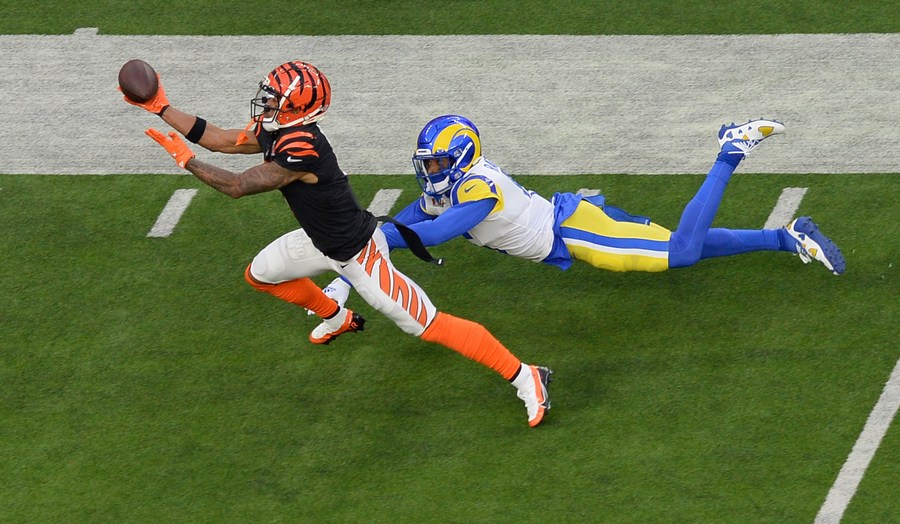
Cincinnati Bengals' Ja'Marr Chase (L) competes during the NFL Super Bowl LVI match between Cincinnati Bengals and Los Angeles Rams at SoFi Stadium in Los Angeles, the United States, Feb. 13, 2022. (Xinhua)
SUPER BOWL REQUIREMENT
0n Sunday evening, the Super Bowl was held at SoFi Stadium in Inglewood, California, the second time it took place during the COVID-19 pandemic. The National Football League (NFL), a professional American football league, has issued guidelines for people watching the biggest football match of the year from the stands, including a mask mandate that requires all spectators over age two to wear a mask while inside the stadium, regardless of vaccination status.
Although the NFL is asking everyone to wear a face mask in the stadium, they are allowing spectators to remove their masks while eating or drinking. In addition, while attendees do not need to be vaccinated to enter SoFi Stadium, those five years and older will need to show they are negative for COVID-19 with either a PCR test taken within 48 hours or an antigen test taken within 24 hours.
Inglewood Mayor James Butts admitted that enforcing the mask rule can be difficult, but trusted spectators to follow the guidelines out of respect for themselves and others.
"You can't force everybody to wear a mask all the time," he told ESPN, an American international basic cable sports channel. "In the end, it's the responsibility of the people to take care of themselves, their families and their friends. And that's the simplest way I can put it."
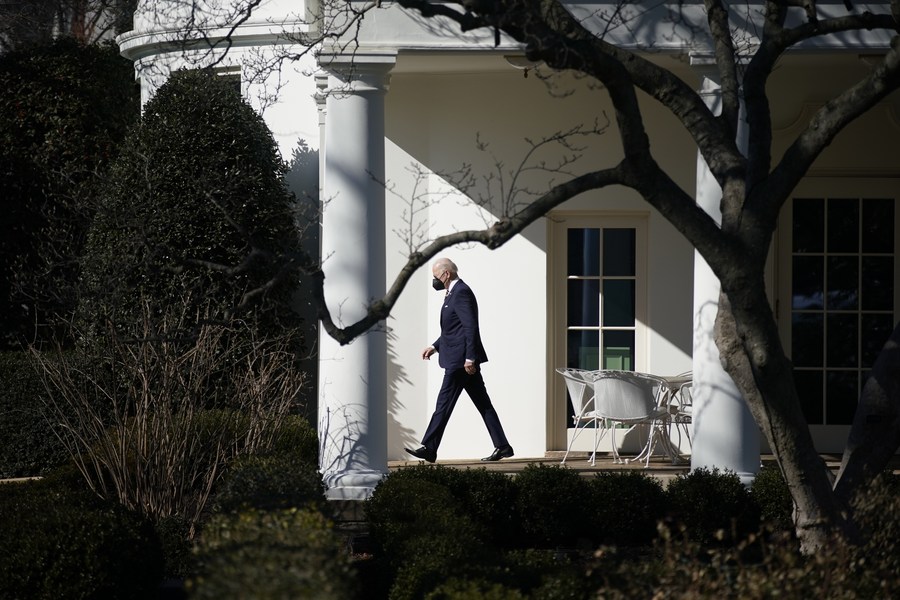
U.S. President Joe Biden wearing a face mask leaves the White House in Washington, D.C., the United States, Feb. 10, 2022. (Photo by Ting Shen/Xinhua)
FACTORS TO WEIGH
There are several factors to weigh when making decisions about masking. Among them are your health, the vulnerability of people in your household, local case rates and your vaccination status. Doctors told The Wall Street Journal that it can make sense to take precautions even as governments pull back.
"Governors removing mask mandates just means that the government is no longer requiring masks. It does not mean that there is now no risk to going around maskless," said Leana Wen, an emergency physician and public-health professor at George Washington University in Washington, D.C.
Meanwhile, the best thing people can do to mitigate their own risk and the spread of COVID-19 is to get vaccinated and boosted, according to the physicians.
"Masking is a tool in the tool kit," Lucy McBride, a Washington, D.C.-based primary-care physician, was quoted as saying, "but there is no substitute for vaccination and boosting." ■
